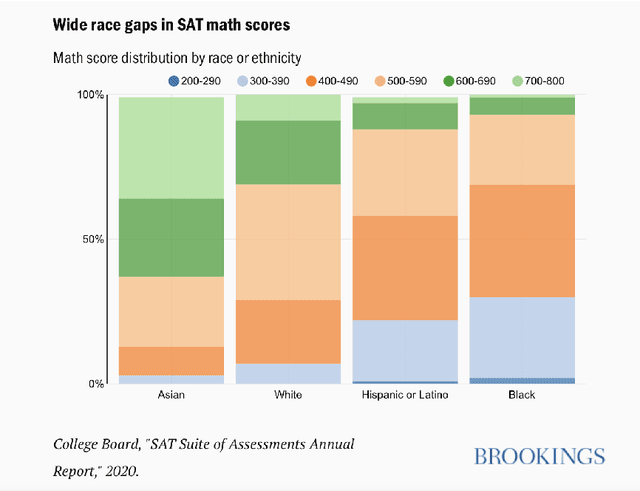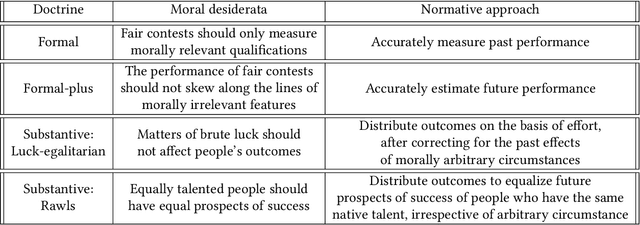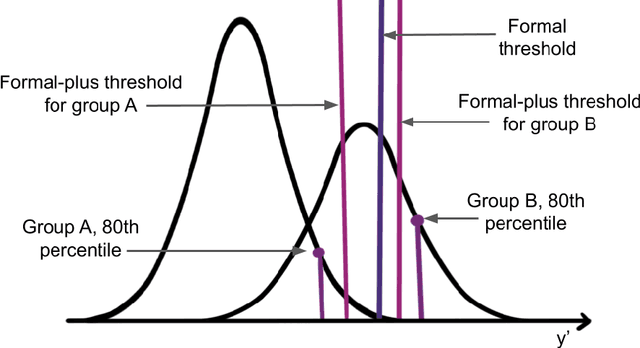Towards Substantive Conceptions of Algorithmic Fairness: Normative Guidance from Equal Opportunity Doctrines
Paper and Code
Jul 11, 2022



In this work we use Equal Oppportunity (EO) doctrines from political philosophy to make explicit the normative judgements embedded in different conceptions of algorithmic fairness. We contrast formal EO approaches that narrowly focus on fair contests at discrete decision points, with substantive EO doctrines that look at people's fair life chances more holistically over the course of a lifetime. We use this taxonomy to provide a moral interpretation of the impossibility results as the incompatibility between different conceptions of a fair contest -- foward-looking versus backward-looking -- when people do not have fair life chances. We use this result to motivate substantive conceptions of algorithmic fairness and outline two plausible procedures based on the luck-egalitarian doctrine of EO, and Rawls's principle of fair equality of opportunity.
 Add to Chrome
Add to Chrome Add to Firefox
Add to Firefox Add to Edge
Add to Edge